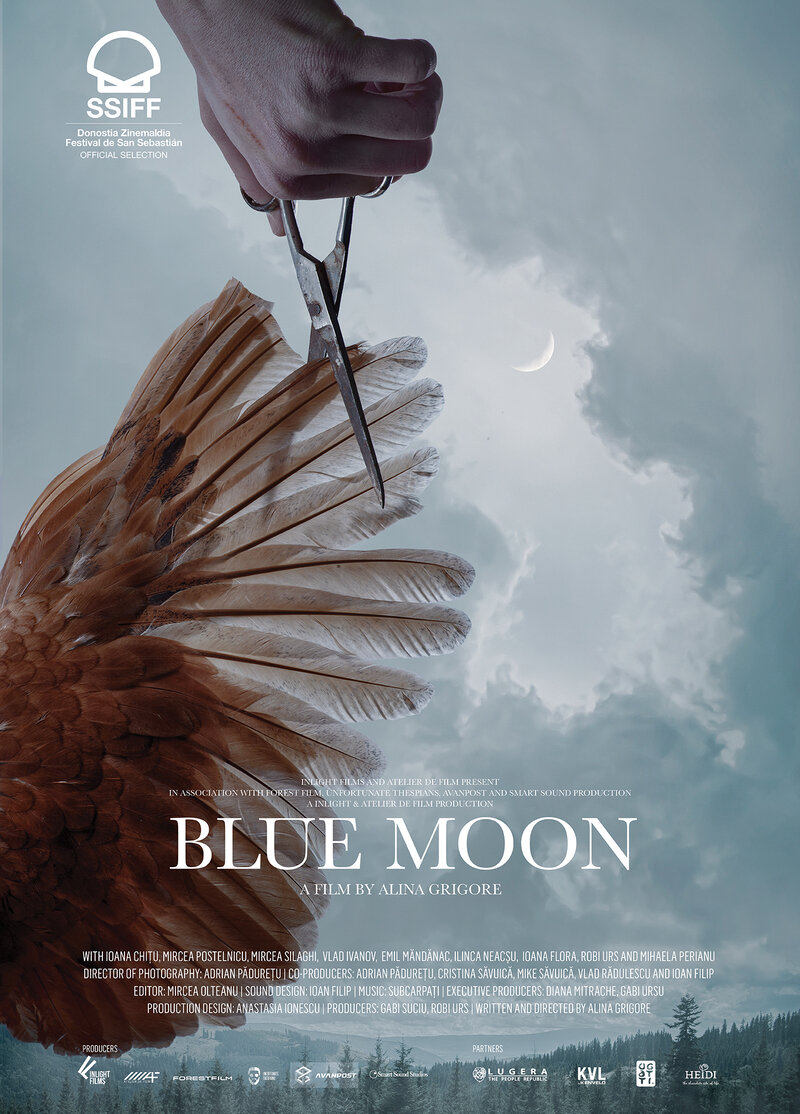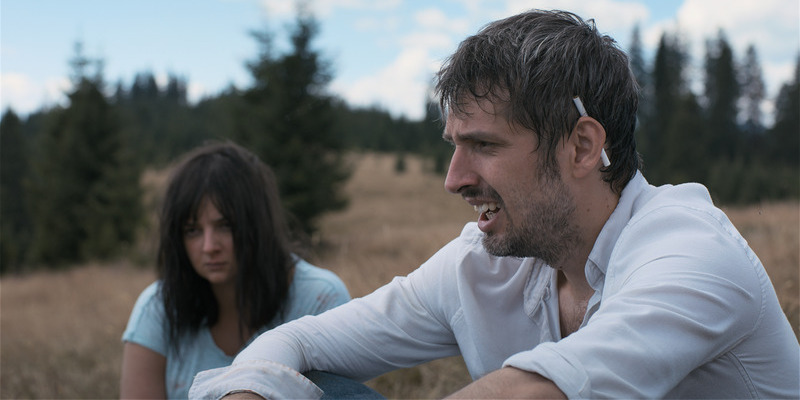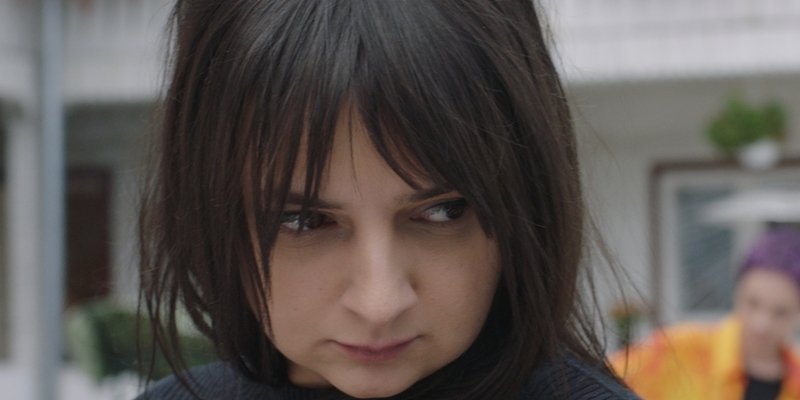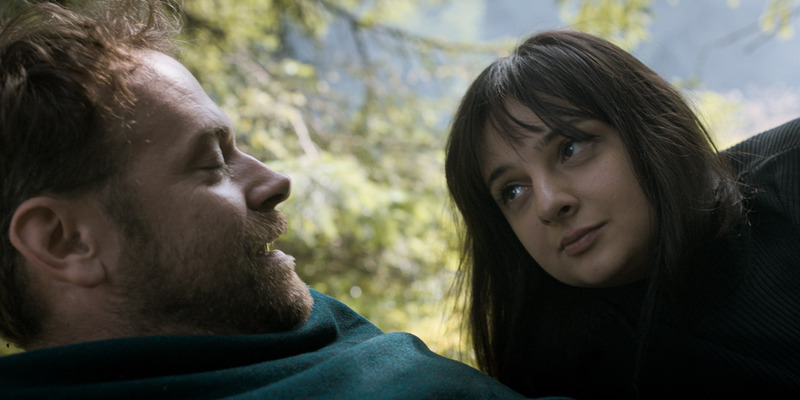
Review by
Eric Hillis
Directed by: Alina Grigore
Starring: Ioana Chitu, Mircea Silaghi, Vlad Ivanov, Mircea Postelnicu, Ilinca Neacsu, Emil Mandanac

Like another recently acclaimed Eastern European drama, the Croatian
Murina, Romania's Blue Moon gives us another young woman
desperate to escape a scenic backdrop because of the oppression of her
family. Here it's 22-year-old Irina (Ioana Chitu), who longs to
leave the beautiful mountains of rural Romania for the capital,
Bucharest, to be rid of her overbearing family, a cross between the
Ewings and the Corleone clan.

As the only family member with a head for numbers, Irina is employed as
the accountant for her father's resort and property business. Her old
man lives in London however, leaving her under the control of her
cousins Sergiu (Mircea Silaghi in the Bobby role) and Liviu (Mircea Postelnicu
as the JR of the piece). The latter takes an almost incestuous interest
in the love life of Irina's sister Viki (Ilinca Neacsu), and is
none too happy with her dating a young man he believes to be
Jewish.
One morning Irina wakes from a party with an ominous bloodstain on her
bed sheet. She later discovers she spent the night with an older married
actor, Tudor (Emil Mandanac), who claims their interaction was
consensual. Irina has no memory of the night, but embarks on a
relationship with Tudor nonetheless. She's so desperate to get away from
her family she'll happily run to the arms of the man who may well have
assaulted her.

And when you meet Liviu it's all too clear why Irina wants to get away
from this madness. Liviu is a hair trigger personality, snapping into
violence at the drop of a hat. There's talk of an incident that occurred
between Liviu and Irina when she was seven, and though the details are
kept largely ambiguous, it's clear Irina hasn't forgiven him.
If you've ever found yourself stuck on a late night bus behind a
drunken, arguing couple, you'll be prepared for how writer/director
Alina Grigore spins this story. Chairs are thrown, tables
overturned and secrets alluded to in shouting matches, but we're never
made fully privy to the backstory of this family. Grigore drops us into
an argument and it's up to us to try and figure out what these
characters are alluding to. The lack of exposition is admirable, but it
can also be a little frustrating as we struggle to keep track of the
various subplots.

Chitu is very good, but there's not a whole lot to her character. She's
defined by those around her, with Grigore making it all too clear why
she needs to leave, but that need to escape seems to be the only thing
fuelling her character. I had the same issue with the young protagonist
of Murina. Both movies share a similar outlook regarding the prospects of young
women in Eastern Europe. But they make the same mistake as many of the
films of Ken Loach and his British social realism acolytes in giving us
protagonists that exist solely to hammer home a point and rarely feel
like they have any real inner lives.


